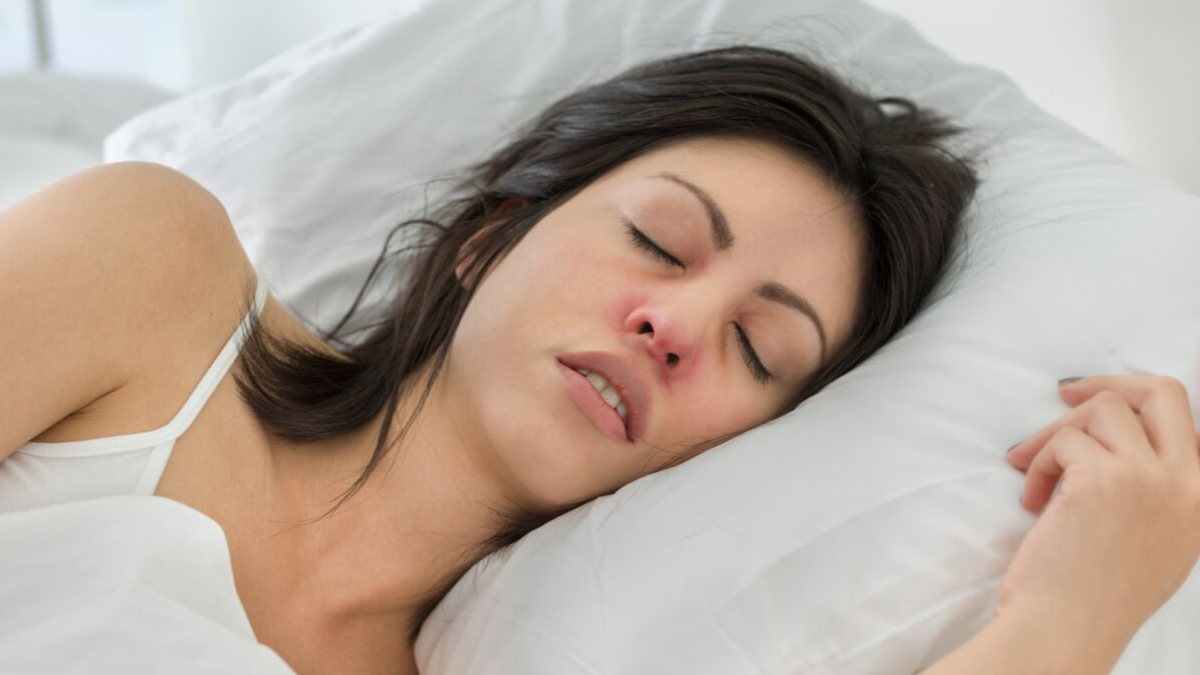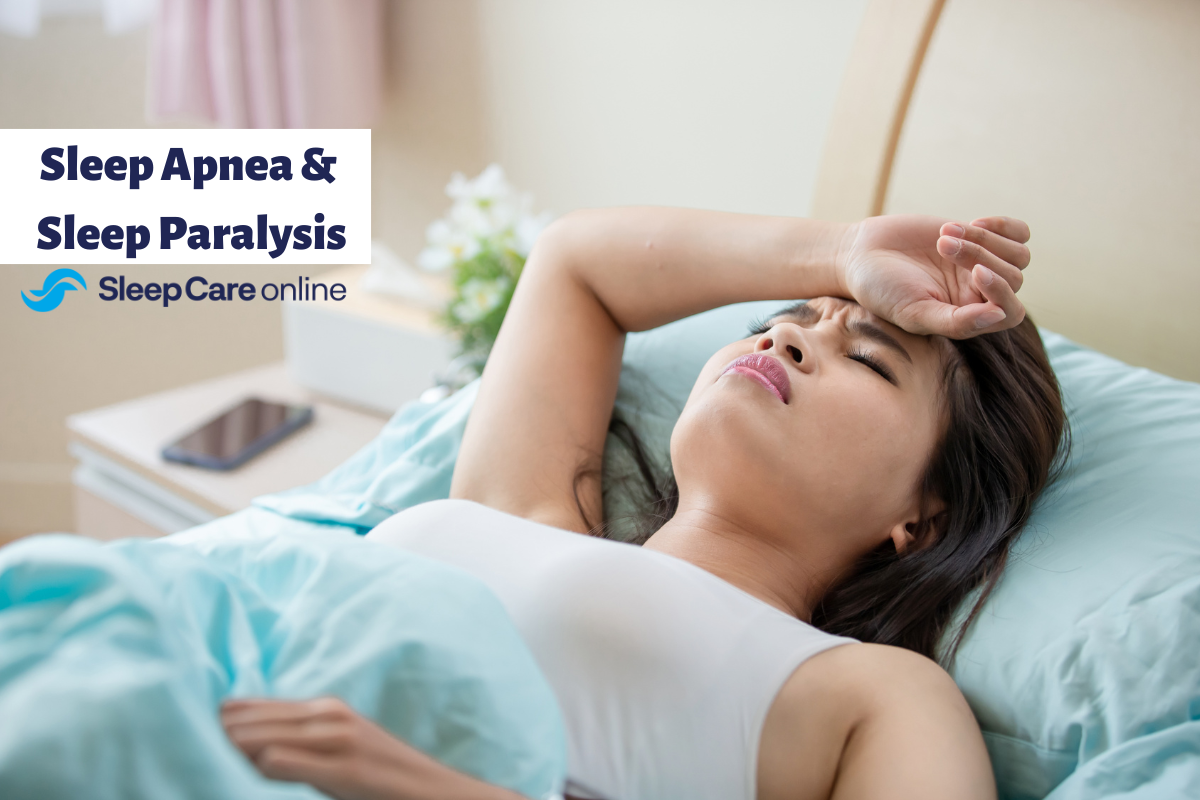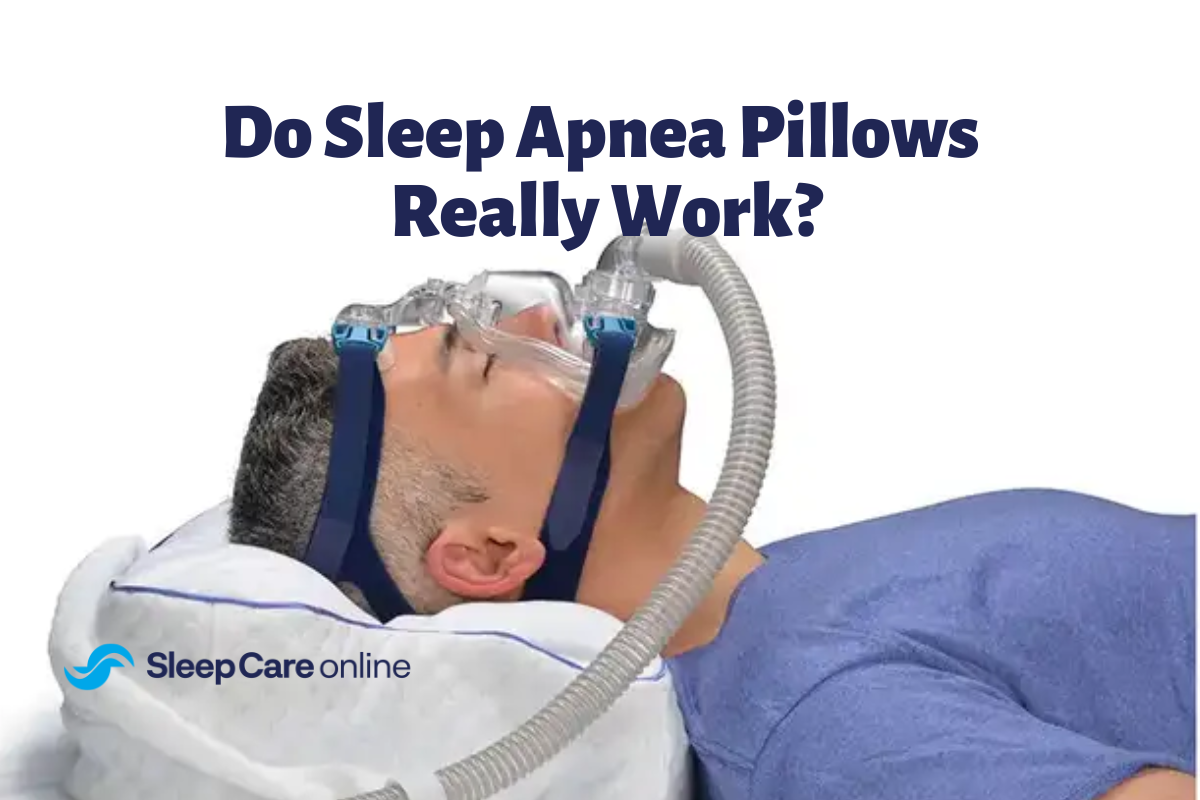Key Takeaways:
- As the name suggests, home sleep studies can be done in the comfort of your home.
- The advantages of a home sleep apnea test are ease and affordability compared to traditional in-lab studies.
- Polysomnography vs home sleep study: In-lab sleep studies offer comprehensive monitoring in a controlled environment, while home sleep studies provide a convenient and less intrusive option for diagnosing obstructive sleep apnea.
There are currently as many as 39 million Americans suffering from undiagnosed obstructive sleep apnea (OSA). Left untreated, OSA can cause multiple health complications, including migraines, inability to focus or concentrate, stroke, cardiovascular disease, diabetes, and even an increased risk of death. A home sleep apnea test can be the solution.
The easiest and simplest way to get tested for sleep apnea is through at home sleep study. First, with our Complete Care package, you complete a health & risk assessment that our sleep practitioners review to determine whether you qualify for a sleep study. Next, you take the home sleep apnea test from the comfort of your own bed at a time that is convenient for you. The data is uploaded the next morning and you schedule a telehealth visit with a sleep expert to discuss your sleep study results and follow-up therapy options.
What Are The Different Types Of Sleep Studies?
Home Sleep Apnea Test (HSAT)
A home sleep study gathers the data associated with an individual’s heart rate, breathing rate, and various other factors. In comparison to Polysomnography, a home sleep study is easily accessible and more comfortable. The home sleep apnea test provides results without an overnight stay in a lab. The home test is mailed to you. Simply follow the instructions for setup, fall asleep, and receive your results and a prescription.
Polysomnography
Sleep tests or polysomnography are traditionally conducted in-house at sleep clinics across the country.
Polysomnography records your brain waves, the oxygen level in your blood, heart rate, and breathing, as well as eye and leg movements during an overnight stay in a lab. Sleep doctors analyze the results of the test and make a diagnosis.
Multiple Sleep Latency Test
The multiple sleep latency test monitors how fast an individual falls asleep and enters REM. The multiple sleep latency test is undertaken to check whether the patient is suffering from excessive sleepiness during the daytime, which might be the result of idiopathic hypersomnia or narcolepsy.
Is An At Home Sleep Study For Sleep Apnea Accurate?
After extensive research, the American Academy of Sleep Medicine endorsed the use of home sleep study for qualified people in the October 2017 issue of the Journal of Clinical Sleep Medicine. The device included in the home sleep study accurately tracks 8 biological data points. The Complete Care package includes sleep experts to interpret that data to provide a diagnosis.
“A home sleep apnea test provides valuable information for the diagnostic assessment of certain patients with suspected obstructive sleep apnea,” said AASM President Dr. Ilene Rosen in a press release. “However, the test is only one component of a comprehensive sleep evaluation, and a sleep medicine practitioner needs to be involved in reviewing and interpreting the raw data from the device.”
Who Should Take a Sleep Apnea Study at Home?
A sleep study is best for someone who suspects they may be suffering from a sleep disorder, such as obstructive sleep apnea (OSA). Symptoms typically include snoring or waking up gasping for air. For any patient who needs to be diagnosed with a sleep disorder, a home sleep study is an easier, more affordable, and more convenient option. With a home sleep study, patients no longer have to wait for an opening at a sleep clinic, spend an overnight in an unknown bed while someone is watching, nor rearrange their schedule or provide care for others while out of the home. It is a particularly appealing option for elderly patients, those with other comorbidities, and those who travel frequently.
If you suspect that you might have OSA, we recommend checking out the Complete Care Package from Sleep Care online. By purchasing Complete Care, customers can take a brief sleep questionnaire at checkout. When your purchase is complete, customers will receive a disposable home sleep test in the mail. Once received, simply follow the instructions to take the sleep test from the comfort of your bed. In the morning, results are uploaded to the cloud where they can be analyzed. Next, schedule a 10-minute consultation with one of our sleep experts to review your results and prescribe PAP therapy, if warranted.
Why Do You Need a Sleep Study?
Undergoing a sleep study is an ideal way to find out whether you have a sleep disorder. This study is used in diagnosing sleep apnea. An overnight sleep study measures data about the quality and quantity of sleep of an individual. The in-lab study tracks data like a heartbeat, brain waves, rate of breathing, and eye as well as leg movements.
What are the Signs of Sleep Apnea?
Before you take a home sleep apnea test, look for the following signs of obstructive sleep apnea:
- Obstructive breathing while sleeping
- Bruxism
- Insomnia
- Loud snoring
- Excessive daytime sleepiness
- Nocturia
- Obesity
A home sleep study is not advisable for some sleep problems, but it is approved for the detection of sleep apnea. Physicians require a sleep test prior to writing a prescription for CPAP therapy. A home sleep study is one of the best and accurate ways to detect the signs of sleep apnea. This method is suitable for people at least 18 years of age who potentially suffer from OSA.
What Does a Sleep Study Show?
The in-lab sleep test, also known as a polysomnogram (PSG) test, records brain activity, eye movements, heart rate, blood pressure, oxygen levels, and body movements while you sleep. The doctor compares these measurements to normal sleep pattern standards. Erratic patterns in the data can suggest a sleep disorder.
What is the Process Involved in an Online Sleep Study?
The home sleep study process at Sleep Care online is simple, fast, and accurate. Just follow the steps mentioned below:
Step 1: Telehealth Consultation – Schedule a quick consultation with a sleep professional to discuss your symptoms, testing options, and next steps.
Step 2: Take a Sleep Test – Complete your sleep test comfortably at home, in your bed, whenever it suits you.
Step 3: Prescription for Therapy – Once your data is reviewed, receive a prescription for therapy if needed, and start your journey to better sleep!
“It’s easy to use and highly accurate! Multiple studies have shown that, in properly selected patients, home testing provides similar outcomes, including accurate diagnosis and successful treatment,” said Lawrence Epstein, MD. “Home sleep apnea tests allow detection of sleep-related breathing problems while sleeping in your own bed. Advances in technology now allow people concerned they may have the common sleep disorder obstructive sleep apnea to get tested with a high degree of accuracy while avoiding an overnight stay in a sleep laboratory.”
Click here for more information on how to diagnose sleep apnea at home.
Home Sleep Study Preparation
- Be sure to discuss the medications you are taking with the sleep experts beforehand.
- Avoid any caffeinated beverages or alcohol before the test as these substances can affect the results.
- Stick to your typical schedule and bedtime. This will help to make your sleeping environment as comfortable as you can while you are going through the sleep study.
- Avoid naps. Napping can leave you too awake to complete the sleep study successfully.
What are Normal Sleep Study Results?
Normal, healthy sleep in a sleep study will show that you successfully transition through the five stages of REM sleep:
- Stage 1 of non-REM sleep: Reduced muscle movement and the slow movement of the eyes behind the eyelids.
- Stage 2 of non-REM sleep: Slowed heart rate, breathing, and body temperature as well as minimal eye movement.
- Stage 3 of non-REM sleep: Brain waves slow down, and body and breathing are at their most relaxed.
- Stage 4 of non-REM sleep: The body becomes difficult to awaken at this stage with slower brain waves.
- Stage 5: REM sleep: This is the stage of sleep when we dream. It is the deepest level of sleep. You must reach this stage of sleep to rejuvenate the body and mind.
How Much Does a Sleep Apnea Study At Home Cost?
Traditional, in-lab sleep studies require a night or two spent in an outpatient clinic while a technician watches you sleep. These studies typically cost between $2500 to $5000, a portion of which may or may not be covered by insurance. A home sleep test is only a fraction of that cost.
Sleep Care online’s Complete Care package costs $219 and includes a brief questionnaire, a disposable home sleep test, a telehealth visit with a sleep practitioner and a to review of the sleep apnea study at home results, and a prescription for CPAP therapy (if required).
Get Tested for Sleep Apnea At A Much Lower Cost
A home sleep apnea study saves you a lot of money over in-lab testing. Additionally, your medical insurance provider may fully or partly cover a home sleep test.
Stay Comfortable While You Conduct Your Sleep Apnea Study
A home sleep test offers countless advantages, with the main advantage being the ability to stay at home and sleep more comfortably without being monitored. You can take the test immediately or on your own schedule and in your own bed and environment. The device is simple to use and will not impact your night of sleep. You’ll be able to perform your own nightly routine while being assured of accurate test results.
Get Your Sleep Apnea Tested With Superior Convenience
The home test is more convenient than laboratory studies, especially when you want to keep away from hospitals and clinics as much as you can during the current coronavirus pandemic. In comparison, the procedure may even provide a more accurate result because you’re at your own house and you will sleep more normally than you would be hooked up to sensors and being monitored in a lab.
Don’t Disrupt Your Daily Routine While Testing
A sleep study at home doesn’t require you to change your daily routine which includes being with your family, going to work, cooking meals, etc. You don’t have to go anywhere. Instead, the equipment is provided to your doorstep.
Home Sleep Study vs. In-Lab Sleep Studies (Polysomnography)
In-lab sleep studies have been the only option for a very long time. Patients must rely on coordinating their schedule with bed availability, and that process can be particularly cumbersome if a second night of sleep data is required. Once the data is selected, you have to make adjustments to your daily life to accommodate your night(s) away. This includes finding babysitters for your kids–often on school nights!–or finding someone to walk and feed your pets while you are away. Then there’s the expense: in-lab sleep studies can cost up to $5000 and may or may not be covered by insurance.
Alternatively, a home sleep study is affordable and convenient. In addition to having everything you need mailed to your door, you do not have to adjust your daily routine. As a result, the sleep data will likely provide your physician with a more complete look at your typical sleep patterns. In-lab sleep studies are sterile and unfamiliar, and sleep is often difficult with nodes and wires hooked to your body and a technician watching you sleep. However, home sleep tests are designed to detect obstructive sleep apnea. If you suspect you have other sleep disorders or many comorbidities such as lung disease, heart failure, etc. an in-lab sleep study is a better option for you.
To learn more about polysomnography vs. home sleep study, click here.
Limitations of a Home Sleep Study at Home
While at-home sleep apnea tests are easier and less expensive there can be some drawbacks.
Diagnosing Sleep Disorders
At-home sleep apnea tests tend to just focus on diagnosing obstructive sleep apnea. If you suffer from other sleep disorders, then a polysomnography may be required.
Does Not Suit All Patients
Some patients may not like the hands-on DIY approach to sleep apnea testing that is required with an at-home test. They may prefer the consultation and supervision of a lab environment and lab staff.
Works Best with Less-Serious Cases
An at-home sleep apnea test may not be the best choice for more serious cases of OSA. So, severe obstructive sleep apnea may need more extensive study in a lab environment.
Where and How to Get a Home Sleep Study
With Sleep Care online, simply purchase the Complete Care Package to get started. Sleep Care Online is available in all states. If you still have questions, don’t hesitate to contact our customer care team. Give them a call at 866-465-4478 or email them at contact@sleepcareonline.com today!




